I have been working with babies and toddlers in early intervention for almost 10 years now and one of the questions I get asked the most is about hitting.
Is it normal for my toddler to hit?
Does it mean that they are always going to be aggressive?
Why are they hitting and what can I do to make it stop.
In this post I will answer all your questions about toddler hitting.
Here is what you will learn:
- Is it normal for my toddler to hit?
- Toddler Hitting Parent During Tantrum
- Why do toddlers hit themselves?
- Why do toddlers hit?
- Responding When a Toddler Hits Another Child
- Hitting At Daycare
- Toddler Hitting Baby
- Frequently Asked Questions
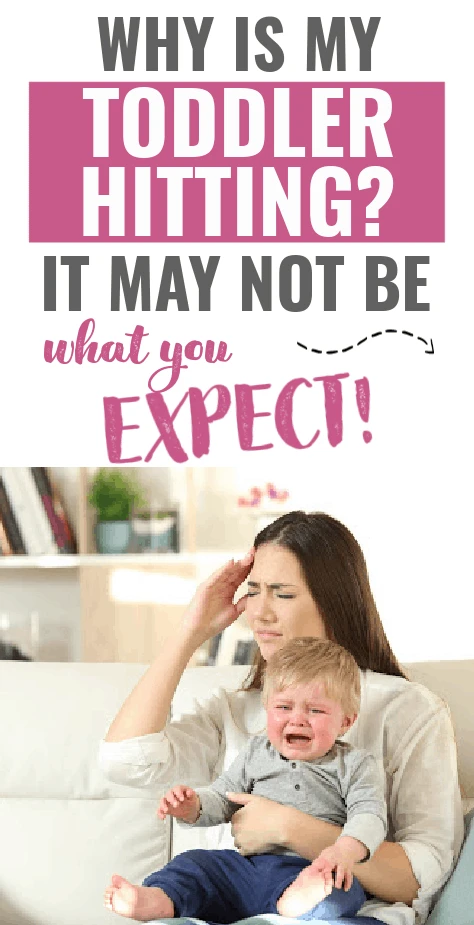
Is it normal for my toddler to hit?
Many parents get concerned because hitting seems like such an aggressive behavior.
However, just like toddler biting, many toddlers will hit others in the early years.
Some children will hit their parents, other kids at daycare or even hit themselves.
Let’s look at some reasons why toddlers hit and what we can do to support your little one.
Toddler Hitting Parents During Tantrum
Parents are often on the receiving end when it comes to toddler hitting.
If your toddler is hitting you the first thing you need to think about is “why are they hitting?”
Hitting is a behavior and all behavior is a form of communication.
In order to figure out the best way to address the hitting we need to figure out why they are hitting.
Children feel very safe around their parents and that is why sometimes they will see behaviors like just around them but no one else.
They know that you will love them no matter what so they may test boundaries a bit which is normal as well.
What emotions is your child showing when they hit?
Are they frustrated? Do they think it is funny?
This can help give us some clues into why they are hitting and help us figure out ways to support them and replace or end the behavior.
How should you react when your toddler hits you?
Instead of with anger…get curious.
If they are able to verbalize well simply ask them.
You may be surprised at their answer.
As parents we often times think of hitting as a negative behavior but what we need to do is think of it has just a behavior…not good or bad.
Hitting can actually be helpful if we think of it as a skill.
Baseball players use a bat to hit a ball.
I have always been surprised when I take my kids out into nature just how much they enjoy taking sticks and hitting the ground or trees.
They are not doing it out of anger or frustration they are doing it as a form of play which may be motivated by the needs to expand energy or use their muscles in a certain way.
Why do toddlers hit themselves?
It is also not uncommon for children to hit themselves.
Once again we are going to need to figure why they are doing this so that we can provide support or teach them skills that will help to end this
If you notice your toddler hitting themselves pay attention to what happens right before they hit, after, and during.
It may also be helpful to take note to what time of day this is happening so we can get even more information about the behavior.
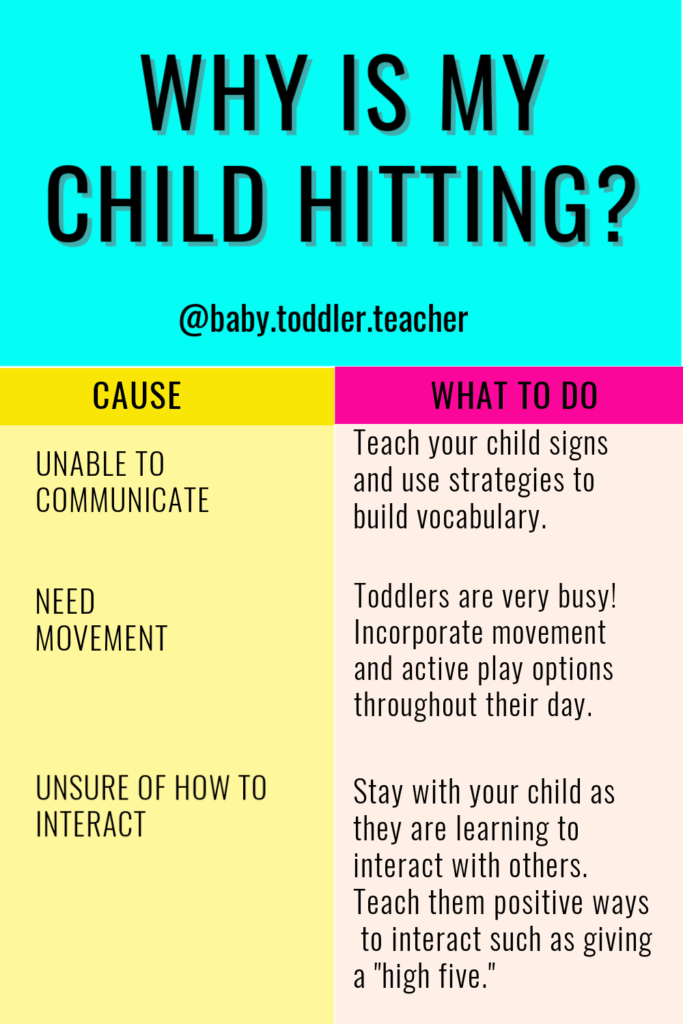
Why do toddlers hit?
There are many reasons that your toddler is hitting as with any behavior and some of them are very similar to if your toddler is biting.
- Unsure of how to interact with others
- Sensory
- Play
- Overtired
- Hungry
- Frustration
- Anger
- Lack of communication
- Feeling Unsafe
- Anxiety
- Sick
It may not be clear to you at first which one is the reason that your child is hitting and it may be something that is not on this list.
Each time they hit it could be for a different reason which can make it more complicated to figure out as well.
Do you notice any patterns with the time of day you see hitting?
Does it happen more before nap or near the end of the day?
This could mean that your child may be a overtired and we may need to bump up nap or bedtime to end the hitting.
Responding When a Toddler Hits Another Child
So your child is playing with a sibling, caregiver, or a friend and hits them.
What should you do first?
The first thing is to note what happened before, during, and after the hitting episode.
This will help us identify why they are hitting which will then help us to address the behavior.
Did they hit because a friend had a toy they wanted?
They may not have the verbal skills to let a peer know they want something so we could work on getting them to find an adult to help or teach them the phrase “my turn.”
Did the hitting seem to just come out of no where?
Perhaps they have been a little too cooped up and need to burn some energy by spending more outside time during the day.
Once the hit has happened it is important to attend to the child that has been hit.
Ask them if they are ok and how they feel.
You can then tell the child that hit that their friend is upset because they are hurt and ask them to help you make them feel better.
I feel like this is a more powerful response then simply asking them to just “say sorry.”
We want children to learn to be aware of other peoples emotions and also problem solve when things go wrong instead of shaming them.
When emotions are cooled down it can be a good time to talk to the child that hit about what happened.
If they are old enough to tell you why they hit…simply ask them.
Then problem solve together a solution to prevent it from happening again.
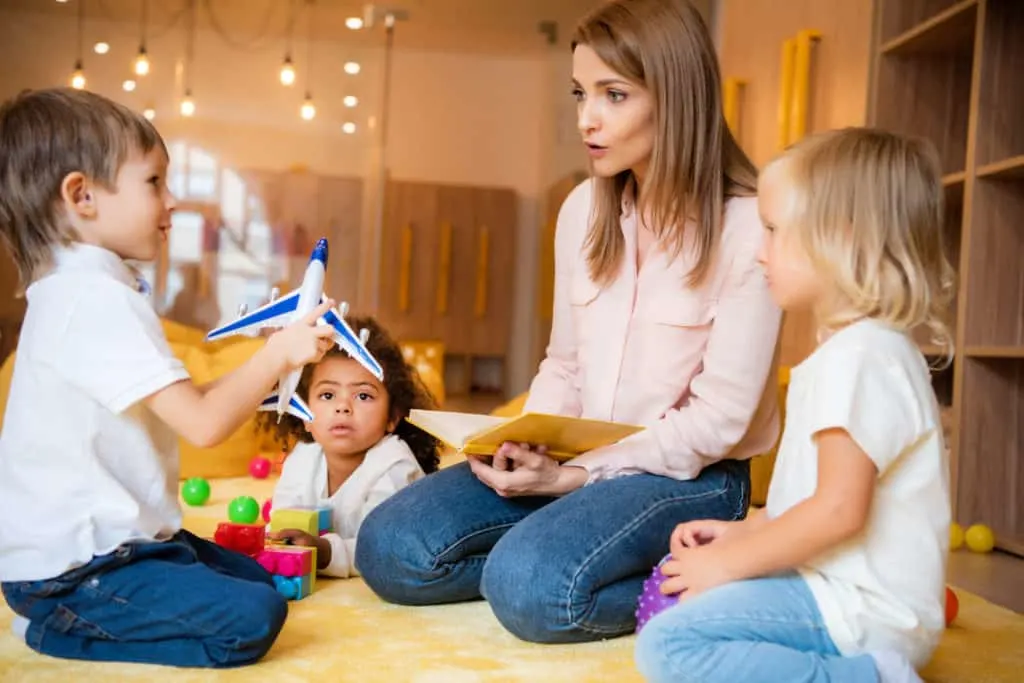
Hitting at Daycare: What to do
Has your childcare provider let you know that your little one is hitting other children?
If this is happening you will need to work closely with your childcare provider to figure out the reason why your child is hitting and how you can help make sure your little one is being supported.
Ask your childcare provider how they handle it.
Does this align with the way you handle behaviors like this in your own own home?
Consistency is very important when it comes to how to handle behaviors so make sure that you are on the same page.
The most important thing you can your childcare provider need to do is figure out the function of the hitting.
We can figure it out by paying very close attention to what happened before, during, and after the hit.
Was another child in their space?
If so how can give your child the skills to tell someone to get out of their space?
Maybe we could teach them to say “stop” or even hold out their hand like a stop sign.
Does hitting get worse before naptime?
Maybe your child is overtired and they need to go down for nap a bit earlier.
Figure out the cause and then you will know how to address the hitting.
Toddler Hitting Baby
Your baby is happily playing on the floor while their toddler siblings play near…when all of a sudden out of now where the toddler goes to strike the baby!
Why is this happening? Does your toddler hate their new sibling?
No of course not.
Chances are your toddler is unsure of how to interact with the new little person in their life.
You will want to make sure you closely supervise your baby and toddler when they are playing with or near eachother.
One crucial thing that you can do is focus on teaching your toddler how to play and interact with the baby appropriatly.
Here are some examples of ways that your toddler could interact with their little sibling:
- Waving to them
- Blowing kisses
- Smiling
- Bringing them a toy
- Singing a song
- Talking to them
- Gently touching or patting arms and lags
- Letting baby grip their fingers
- Showing a book to the baby
You will want to focus on letting your toddler know that these are ways they can interact with the baby.
If your toddler is acting in a way towards the baby that could harm it is important for you to let your toddler know that you must keep everyone safe.
One of the best ways to prevent hitting is by teaching your little one how to interact with others in an appropriate or safe way. This means modeling appropriate behaviors during play time. You can also teach skills like these through simple role playing games.
If your toddler has words to communicate you can ask them about how and why they are feeling. If not, pay attention to what is going on around your little one to see if you can find the trigger or cause of why they are upset. Keep in mind it is normal for kids to have different emotions just like us.
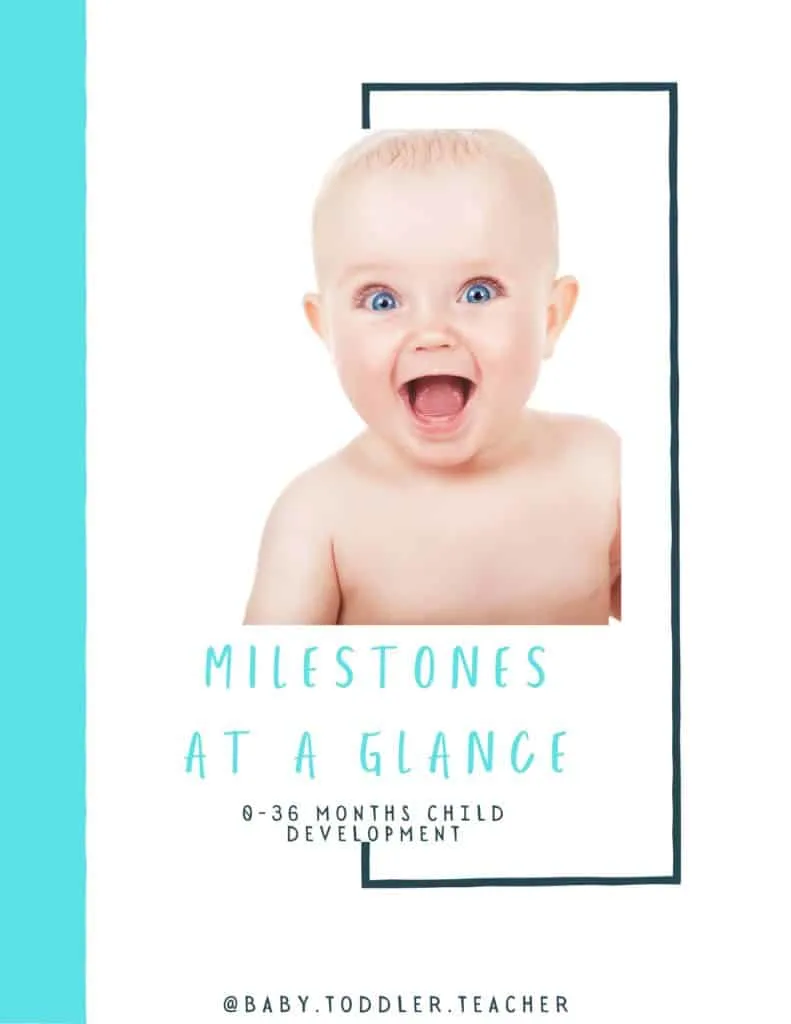
Grab your FREE Milestone Guide HERE.
Related Posts You Will Enjoy
The Best Outdoor Toys for Two Year Olds
Simple Math Activity for Toddler
How long does two year old sleep regression last?
Toddler Toys that Encourage Imagination
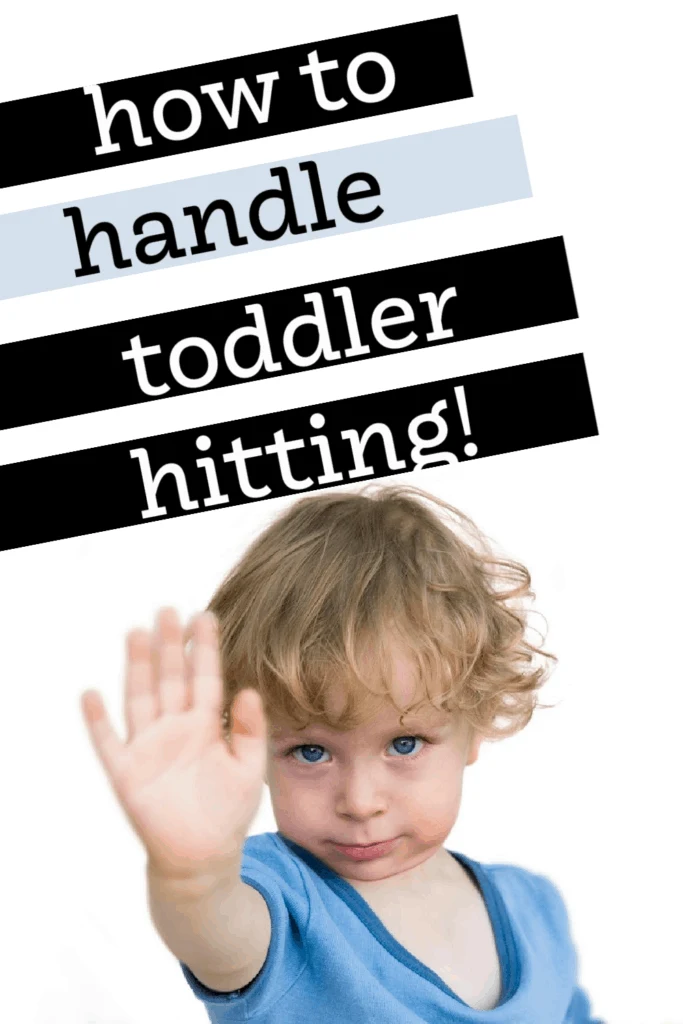

Kayla O’Neill has a master’s degree in education as well as a bachelor’s degree in special education with an emphasis in early childhood education. She has been working as a developmental therapist with babies and toddlers in early intervention since 2012. She is also a mom with two young children.